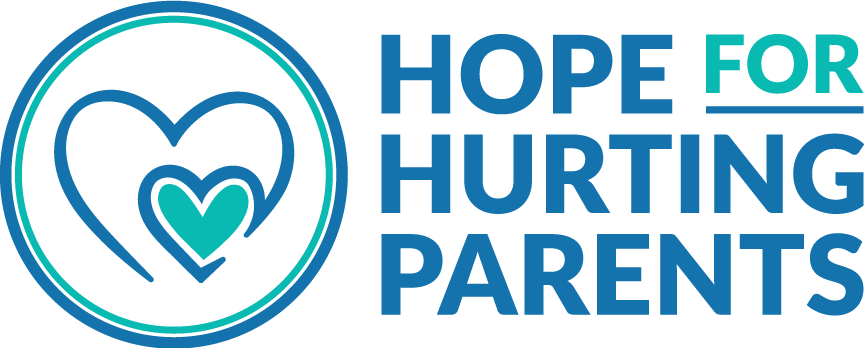
lalesh aldarwish at Pexels
Sometimes, loving, caring parents are confused whether or not they’re enabling their child’s troublesome behaviors. Aren’t we simply showing love, giving grace, and being helpful?
As a recovering enabler, I’ve learned that if your son or daughter is abusing substances, not accepting help for a problem they have (mental illness or some other risky behavior), or are acting in abusive ways, enabling only makes things worse.
“Can’t I help them if I want to?” you may wonder. “But, I like to help”, you say. “At least I know they’re okay and this keeps the peace between us. I don’t want to make them mad or turn them away. I couldn’t forgive myself if something bad happened.” But are you really helping? Is your relationship truly healthy? Where will this end? And when?
It’s time to take a closer look at ourselves. Could we be contributing to the problem? Is it possible we’re keeping our child sick longer (yes, longer!) and ourselves in a detrimental, unhealthy condition?
How can we determine if we’re enabling? Get ready. Get set! Go!
4 Red Flags

Darius Krause at Pexels
These four red flags might indicate enabling behavior. They’re from a recent blog by counselor and author, Leslie Vernick (leslievernick.com) (I made a few revisions.) Leslie was specifically speaking to spouses in emotionally abusive marriages, but they can apply to us, too.
- Do you ever lie, cover up, or make excuses for their [emotionally abusive] behaviors? You might have a very good reason, like you don’t want to embarrass them or disrespect them by calling it what it is, but right now, just be honest with yourself.
Sometimes we think that this is our duty or responsibility as a good parent or godly person to cover up sin, but I don’t believe God wants us to exchange the truth for a lie or call evil good.
We can speak the truth with a gentle spirit and in love (with their best interests in mind).
In the Bible, the apostle Paul says we are to have nothing to do with the unfruitful deeds of darkness but rather expose them (Ephesians 5:11). When abuse remains hidden and secret, it flourishes.
- Do you regularly change your behaviors, stuff your feelings, or guard what you say to keep the peace, prevent an argument, protect them, or make them happy?
Again, in any family there is a fair amount of give and take and at certain times for good reasons we might do any of the above. But when they’re abusing substances or we are the one who is doing most of the accommodating, significantly changing who we are or stuffing how we feel, then, the relationship is unhealthy. We’re not helping.
- Are you doing things for your child (teen or adult) that they should be doing for themselves?Again, there are times in healthy relationships when we do extra favors for one another. But when you are the one doing the most of the work and your son or daughter is not sharing those responsibilities, you are enabling them to be selfish, lazy, and indifferent. If you repeatedly step in, you’re actually sending the message that you don’t think they can do it; that they aren’t capable. [When mental illness is involved it is much more difficult to discern. Talking with a counselor can help.]

Samantha Garrote at Pexels
- Are you taking the responsibility or blame for things that you are not responsible for? For example, [when they’re angry because you refused to call in sick for them, give them money or pay a bill, let them smoke weed in your house, bail them out of jail, etc. and they say “if only you did/didn’t ___________ then I would/wouldn’t_____________” do you accept the fault? Do you feel guilty, believing their problems are a result of your bad parenting? Do you let them blame shift and make you responsible for their bad behaviors?
In each of these things, you cannot change your child. You may be doing all you know to do, but you can’t fix them or take responsibility for their troubles. After reading these four red flags, if you think you’re enabling, pray and ask God to help you stop.
When my husband and I slowly stopped enabling, one step at a time, we began to regain our sanity. We even started to see positive changes in our daughter. You never know what might happen, but remember, there are no guarantees. Doing this on your own is difficult and scary, but going to a support group and talking to a counselor can help as you get ready to make changes.
What will you do?
*I’ve written a lot about enabling and detaching. If you want to read more, you can do a search by topic.
*Recommended book: Setting Boundaries With Your Adult Children by Allison Bottke (listed here on our website book list).

This short piece on red flags of enabling was very insightful, especially in acknowledgement that in the case of mental illness, some “enabling behaviors “ may be justified. Too often, well meaning friends or even professionals will label anything short of total detachment as enabling. This is where it is especially important to be discerning on how and when to help, and to be aware that it is easy to cross that line between helpful involvement and true enabling.
Thank you for your comment, Pat. May God increase our ability to discern where that line is between helping and enabling isn’t easy, right?